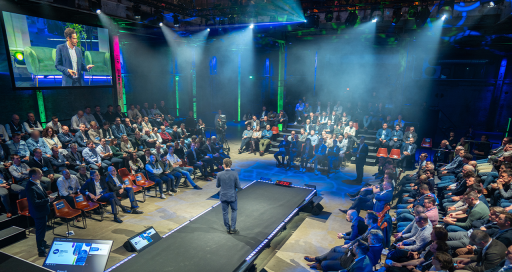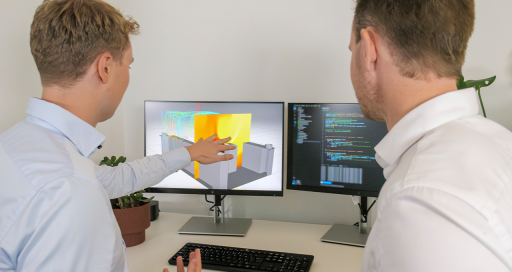AI invites us to change the way we think about problem solving
Reading time: 4 min
Artificial intelligence represents a fundamental transformation that requires adaptability and a change of mentality. Its real impact extends far beyond the technology itself and is being felt in its progressive integration into human activities.

Unlike the conventional software and digital developments of the last few decades, AI is more than just a tool. It represents a major transformation in the way we understand and solve problems, make decisions and tackle innovation.
However, in my experience in engineering-related industries, the real challenge of AI does not and will not lie in developing it, but in adapting and incorporating it into our working methods. That is what makes it so important to focus on a few basic concepts when we talk about AI, such as its practical potential, our organisational adaptability and the mindset required for its implementation.
From buzz to value
There is currently an overwhelming media buzz around AI. The potential is huge: from more intelligent systems and autonomous decision making to cost savings and revolutionary innovations.
This potential is real. Using data-driven information, AI is able to detect trends more quickly than we can, predict faults, improve product design and accelerate R&D. The potential is there in every sector, from energy to manufacturing to healthcare.
In the near future, the most valuable use cases for AI will be those in which humans and machines work together: a predictive model to assist maintenance planning; a simulation that can adapt in real time; a quality control system that reports anomalies. AI acting as an accelerator rather than a disruptor.
Small steps, big results
AI, as we understand it now and in the near future, is a powerful tool, helping us generate improvements that accumulate over time. We often talk about innovation as though it must be disruptive, but in reality, important gains are often made through minor adjustments, such as optimising processes, improving design margins, detecting problems earlier or reducing stoppages by just a few per cent.
AI is acting as an accelerator rather than a disruptor.
These changes are hardly front-page news, but they are having a considerable impact. AI allows gains like these by transforming disorganised and underutilised data into useable information.
Adaptability over legacy
One of the lessons I have learned over my years in R&D is that adaptability is generally more valuable than technical legacy. And this is a lesson more and more businesses will be learning in the near future.
Organisations overwhelmed by their sheer size or outmoded ways of thinking may be deceived into thinking of and managing AI like traditional software. AI needs context, and the technology is evolving – rapidly. A solution can become a significant improvement over the previous one in a very short time. Without an adaptable mindset, we can quickly become bogged down in routines that get old faster than we are used to.
Generally speaking, we can say that the technological development pace today is far beyond many organisations ability to adapt. This gap is what dooms many AI projects to failure. Even if the innovation is sound, it is very likely to be compromised if not correctly applied. How many good ideas, poorly executed, have ended up abandoned and forgotten?
AI is more than a tool – it’s a mindset
AI is not just about automated learning, neural networks, data and algorithms. It means changing the way we think about problem solving. Can we automate that? Can we make better-informed decisions? More consistent decisions? You don’t need to be an AI expert to take advantage of the new technologies that come with it. You do however have to be able to adapt to working with AI, using it, challenging it and evolving it.
AI is an ideal solution for dynamic organisations – those that prioritise experimentation, fast feedback loops and collaborative development. These organisations do not wait for the perfect moment to act. They evolve, learn and adapt, aware that the spoils do not fall to the most experienced, but to those who manage change most effectively.
15/10/2025



